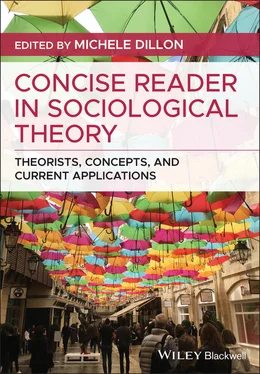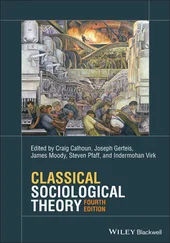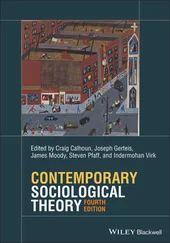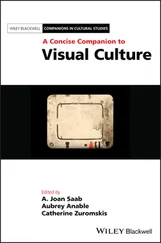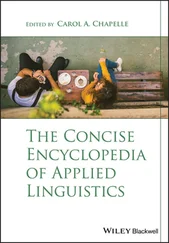To be objective the definition clearly must express the phenomena as a function, not of an idea of the mind, but of their inherent properties. It must characterise them according to some integrating element in their nature and not according to whether they conform to some more or less ideal notion. When research is only just beginning and the facts have not yet been submitted to any analysis, their sole ascertainable characteristics are those sufficiently external to be immediately apparent. Those less apparent are doubtless more essential. Their explanatory value is greater, but they remain unknown at this stage of scientific knowledge and cannot be visualised save by substituting for reality some conception of the mind. Thus it is among the first group of visible characteristics that must be sought the elements for this basic definition. Yet it is clear that the definition will have to include, without exception or distinction, all the phenomena which equally manifest these same characteristics, for we have no reason nor the means to discriminate between them. These properties, then, are all that we know of reality. Consequently they must determine absolutely how the facts should be classified. We possess no other criterion which can even partially invalidate the effect of this rule. Hence the following rule: The subject matter of research must only include a group of phenomena defined beforehand by certain common external characteristics and all phenomena which correspond to this definition must be so included . For example, we observe that certain actions exist which all possess the one external characteristic that, once they have taken place, they provoke on the part of society that special reaction known as punishment. We constitute them as a group sui generis and classify them under a single heading: any action that is punished is termed a crime and we make crime, so defined, the subject matter of a special science of criminology. Likewise we observe within all known societies the existence of a smaller society outwardly recognisable because it is formed for the most part of individuals linked by a blood relationship and joined to each other by legal ties. From the relevant facts we constitute a special group to which we assign a distinctive name: phenomena of domestic life. We term every aggregate of this kind a family and make the family, so defined, the subject matter of a specific investigation which has not yet received a special designation in sociological terminology. When we later pass on from the family in general to the different types of family, the same rule should be applied. For example, embarking upon a study of the clan, or the maternal or patriarchal family, we should begin by defining them according to the same method. The subject matter of each topic, whether general or specialised, should be constituted according to the same principle.
By proceeding in this way from the outset the sociologist is immediately grounded firmly in reality. Indeed, how the facts are classified does not depend on him, or on his own particular cast of mind, but on the nature of things. The criterion which determines whether they are to be grouped in a particular category can be demonstrated and generally accepted by everybody, and the observer’s statements can be verified by others. It is true that a notion built up in this way does not always chime – or does not generally even chime at all – with the notion commonly held. For example, it is evident that acts relating to freedom of thought or lapses in etiquette which are so regularly and severely punished in many societies, from the viewpoint of common sense are not regarded as crimes when people consider those societies. In the same way a clan is not a family in the usual sense of the word. But this is of no consequence, for it is not simply a question of how we can discover with a fair degree of accuracy the facts to which the words of common parlance refer and the ideas that they convey. What has to be done is to form fresh concepts de novo , ones appropriate to the needs of science and expressed by the use of a special terminology. It is certainly not true that the commonly held concept is useless to the scientist. It serves as a benchmark, indicating to him that somewhere there exists a cluster of phenomena bearing the same name and which consequently are likely to possess common characteristics. Moreover, since the common concept is never without some relationship to the phenomena, it occasionally points to the approximate direction in which they are to be discovered. But as the concept is only crudely formulated, it is quite natural for it not to coincide exactly with the scientific concept which it has been instrumental in instituting. 4
2B Emile Durkheim from Suicide: A Study in Sociology
Original publication details: Emile Durkheim, Suicide: A Study in Sociology , translated by John A. Spaulding and George Simpson, pp. 208–213, 252–254. New York: Free Press, 1951. Reproduced with permission of Simon & Schuster.
We have thus successively set up the three following propositions:
Suicide varies inversely with the degree of integration of religious society.
Suicide varies inversely with the degree of integration of domestic society.
Suicide varies inversely with the degree of integration of political society.
This grouping shows that whereas these different societies have a moderating influence upon suicide, this is due not to special characteristics of each but to a characteristic common to all. Religion does not owe its efficacy to the special nature of religious sentiments, since domestic and political societies both produce the same effects when strongly integrated. This, moreover, we have already proved when studying directly the manner of action of different religions upon suicide. Inversely, it is not the specific nature of the domestic or political tie which can explain the immunity they confer, since religious society has the same advantage. The cause can only be found in a single quality possessed by all these social groups, though perhaps to varying degrees. The only quality satisfying this condition is that they are all strongly integrated social groups. So we reach the general conclusion: suicide varies inversely with the degree of integration of the social groups of which the individual forms a part.
But society cannot disintegrate without the individual simultaneously detaching himself from social life, without his own goals becoming preponderant over those of the community, in a word without his personality tending to surmount the collective personality. The more weakened the groups to which he belongs, the less he depends on them, the more he consequently depends only on himself and recognizes no other rules of conduct than what are founded on his private interests. If we agree to call this state egoism, in which the individual ego asserts itself to excess in the face of the social ego and at its expense, we may call egoistic the special type of suicide springing from excessive individualism.
But how can suicide have such an origin?
First of all, it can be said that, as collective force is one of the obstacles best calculated to restrain suicide, its weakening involves a development of suicide. When society is strongly integrated, it holds individuals under its control, considers them at its service and thus forbids them to dispose wilfully of themselves. Accordingly it opposes their evading their duties to it through death. But how could society impose its supremacy upon them when they refuse to accept this subordination as legitimate? It no longer then possesses the requisite authority to retain them in their duty if they wish to desert; and conscious of its own weakness, it even recognizes their right to do freely what it can no longer prevent. So far as they are the admitted masters of their destinies, it is their privilege to end their lives. They, on their part, have no reason to endure life’s sufferings patiently. For they cling to life more resolutely when belonging to a group they love, so as not to betray interests they put before their own. The bond that unites them with the common cause attaches them to life and the lofty goal they envisage prevents their feeling personal troubles so deeply. There is, in short, in a cohesive and animated society a constant interchange of ideas and feelings from all to each and each to all, something like a mutual moral support, which instead of throwing the individual on his own resources, leads him to share in the collective energy and supports his own when exhausted.
Читать дальше
